Alabama ranks 2020’s 4th worst state for women

Today is International Women’s Day. In recognition, personal-finance website WalletHub recently released its report on 2020’s Best & Worst States for Women and found Alabama is the 4th worst state for women in 2020. To identify the most women-friendly states, WalletHub compared the 50 states and the District of Columbia across 24 key indicators. Some of the considerations include wages, female homicide rate, women’s preventive health care, healthcare, graduation rates, women-owned businesses and more. Woman-friendliness of Alabama (1=Best, 25=Avg.): 28th: Median earnings for female workers (adjusted for cost of living) 33rd: Unemployment rate for women 46th: Share of women in poverty 26th: Share of women-owned businesses 47th: High school graduation rate for women 41st: Share of women who voted in 2016 presidential election 34th: Female uninsured rate 49th: Women’s life expectancy at birth 21st: Women’s preventive health care Here’s a look how Alabama compares to the rest of the country. Source: WalletHub a
Martha Roby: An update on progress for afghan women
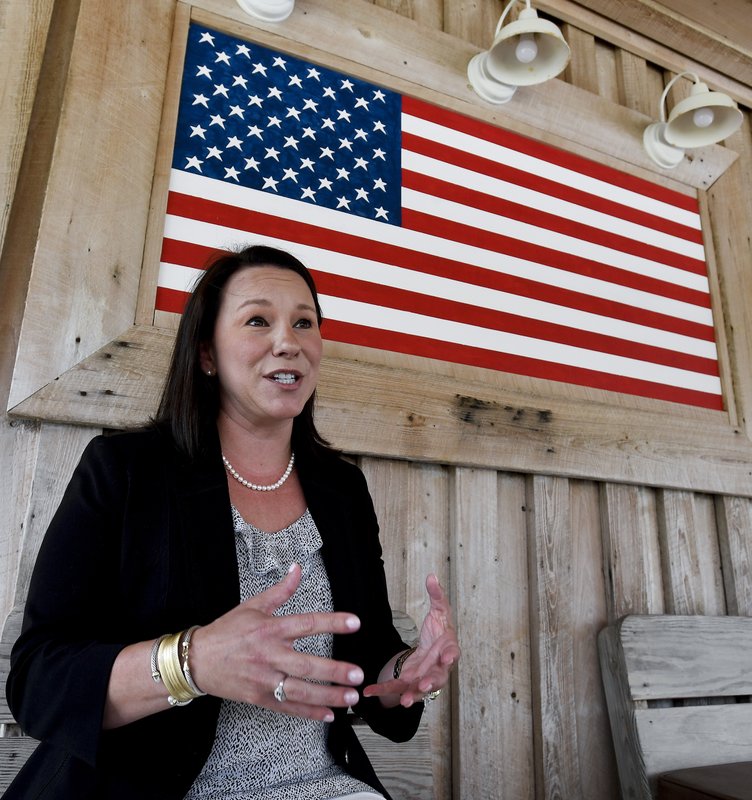
Throughout my time in Congress, I have had the privilege to serve on several committees that directly influence our country’s defense and foreign policy initiatives, namely the House Armed Services Committee and the House Appropriations Committee. Most recently, this Congress, I was asked to serve on the State and Foreign Operations Appropriations Subcommittee. In this role, I have been part of many negotiations regarding funding levels for the many important programs we have overseas. Over the years, I have also used Congress’ constitutional oversight to question members of the Executive Branch about our country’s strategy abroad. I believe that this process is deeply important, and we must remain committed to upholding our country’s system of checks and balances when making critical military and foreign policy decisions. On top of my committee-specific duties related to foreign policy, for the past eight years, my colleague, Congresswoman Susan Davis, and I have led an all-female Mother’s Day trip to Afghanistan. During these trips, we have been given the opportunity to meet with our servicemen and women who are away from their families on Mother’s Day. I believe it is so incredibly important for members of Congress to see firsthand how our policy decisions impact the lives of Americans at home and abroad. I have been able to use what I’ve learned during these trips to make more informed decisions about military spending and defense policy. Also, importantly, these trips have afforded me the opportunity to reaffirm my commitment to improving circumstances for those in Afghanistan, especially Afghan women. While gains have undoubtedly been made since 2001, it remains critical that American leaders stay engaged to ensure continued forward momentum for these women. I recently addressed a group at the United States Institute of Peace, and I told them that it is my belief that a peace deal – a true, lasting peace in Afghanistan – will not be reached until all facets of the Afghan community have a seat at the negotiating table. This means Afghan society must continue to see an increased number of women serving in all societal roles – in the military, police force, as educators, and more. During this time when the future of Afghanistan is uncertain, these conversations I have participated in are so vitally important, and I have been honored to be a part of them. We have made great strides towards improving life for Afghan women over the years, but we must keep moving the ball down the field. The country simply cannot truly move forward until all its citizens have a bettered quality of life, and I will remain engaged in this fight. Martha Roby represents Alabama’s Second Congressional District. She lives in Montgomery, Alabama, with her husband Riley and their two children.
Making a case to women: Donald Trump female defenders go on offense
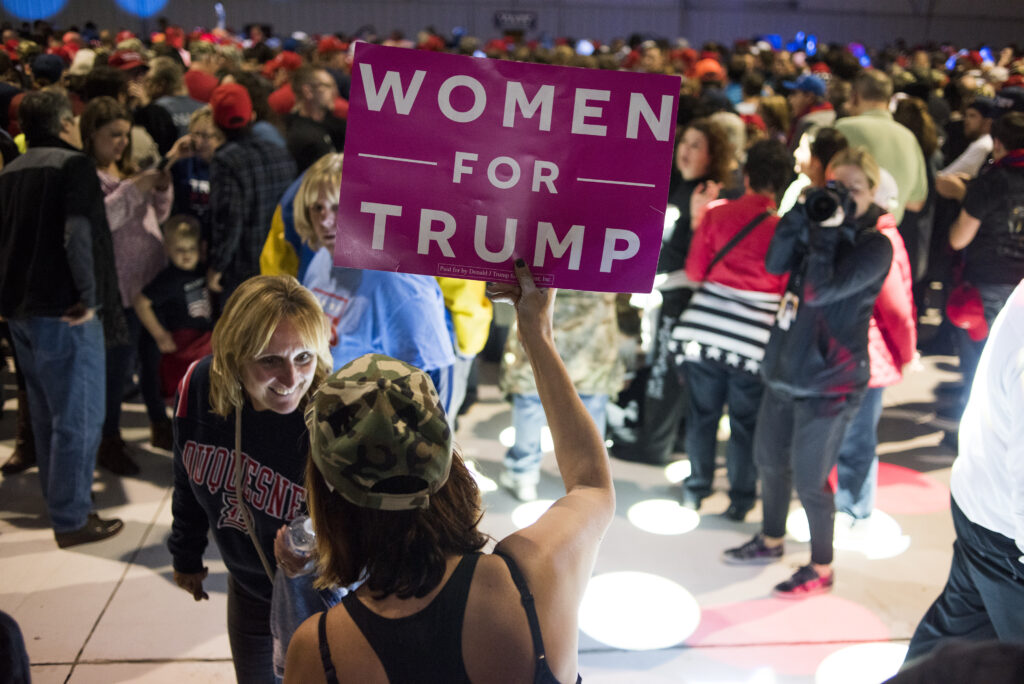
The Donald Trump campaign has a message for its female supporters: It’s time to come out of hiding. “There’s a lot of people that are fearful of expressing their support, and I want you ladies to know it’s OK to have felt that way, but we need to move past that or the Democrats win,” said Tana Goertz, a Trump campaign adviser, at an Iowa “Women for Trump” event on Thursday. The Iowa event, held in the back room of a barbecue joint in a Des Moines suburb, was one of more than a dozen in battleground states nationwide as part of a push to make the president’s case on the economy and train volunteers. The move is a recognition of the president’s persistent deficit with women — an issue that has the potential to sink his chances for reelection. Over the course of his presidency and across public opinion polls, women have been consistently less supportive of President Donald Trump than men have. Suburban women in particular rejected Republicans in the 2018 midterm by margins that set off alarms for the party and the president. Trump himself called into a gathering of hundreds in Tampa, Florida, and insisted, to cheers: “We’re doing great with women, despite the fake news.” But polling suggests his challenges persist. The most recent Associated Press-NORC Center for Public Affairs Research poll found just 30 percent of women approve of the way the president is doing his job, compared to 42 percent of men. Notably, there was no gap between Republican men and women — 80 percent of both groups said they approved of his job performance in the August poll. At an event in Troy, Michigan, a Detroit suburb viewed as key contested territory, Michigan Republican Party Chairwoman Laura Cox acknowledged that Trump’s style is a turnoff for some female voters. But she told the audience of 100 women to focus instead on what Trump had accomplished during his first term. “I get it. I say, ‘Listen, you never wonder what he thinks about people,’” she said. “Some people may not like what he says. But he delivers and has a very good track record of deliverables. And that’s what’s important. I try to get people focused on that, not the personality.” In Iowa, Goertz listed a number of ways that she said women are benefiting from Trump’s presidency, including low unemployment, job creation and “safety” — and she said his immigration policy was a winner there. “When I lay my head down at night, I want to know that my children are safe, that a terrorist is not going to come into our country,” she said. Similar events were scheduled in 13 battleground states, including North Carolina, Pennsylvania, Georgia and Ohio. The events, led by surrogates including White House counselor Kellyanne Conway and former Fox News host Kimberly Guilfoyle, sought to train attendees to be volunteers and what the campaign describes as “ambassadors” for the reelection effort. Among the women in attendance in Troy was Cara McAlister, a sales representative from the nearby suburb of Bloomfield Township. She said Trump’s 2016 candidacy inspired her to get more involved politically, and she became a GOP precinct delegate and canvassed door to door for him. She has friends who were afraid to reveal their support for Trump because they fear backlash. So she invites them to meetings like Thursday’s gathering. “They really enjoy being in an atmosphere where they feel free to express their support for the president,” said McAlister, who was wearing a white “Make America Great Again” cap and blue Trump-Pence shirt and who described herself as “middle age.” ”They tend to want to go to another event.” In Iowa, Joyce Lawson, a 30-year-old barbershop owner from Norwalk, said she finds herself targeted by friends for her conservative views. “I’m afraid of people saying off-key stuff, like you’re racist, you’re with the Klan, just random uneducated stuff, and name-calling. So I want to have facts to stand up for my views,” she said. Trump has turned off higher-income, college educated and younger women “because of how he speaks, how he tweets,” said Republican pollster Frank Luntz, while retaining the support of older women and women with lower incomes and without college degrees.That contrast is evident in Iowa, a state Trump won by more than 9 percentage points in 2016, but one that has historically been seen as a potential swing state. Some Republican women here, like Des Moines resident Pat Inglis, have become more fervent Trump supporters over his first term. “He’s helped this country more than anybody else in the last 20 years,” the 70-year-old retiree said. She added that Democratic attacks against the president, and the leftward tilt of the Democratic Party, have made her all the more enthusiastic toward Trump. Others like Mary Miner, a lifelong Republican and small-business owner from rural Iowa, were driven away from the GOP by Trump. “I’m astonished anyone could support him,” the 61-year-old Miner said. “If my party is going to support that, I’m done with ’em. I’m a Democrat and that’s it.” Recent focus groups show that women have dug in on their views, suggesting there are fewer women open to being persuaded, Luntz said. “It’s become more pronounced where those who don’t like him are overtly hostile and those who do like him will stand up for him aggressively,” Luntz said. “They are even more outspoken than men. They are even more dismissive. It’s spoken with attitude and with venom. And I think it’s because they take it personally.” As a result, he said, the election is likely to come down to a very narrow demographic — married professional mothers with teenagers, he says — who credit Trump for a booming economy but are turned off by his style. “They like what he’s done, but they don’t like how he’s done it,” he said. “Do you want to focus on the ingredients, or do you want to focus on the casserole?”
Women of Influence: The women of the Alabama Legislature
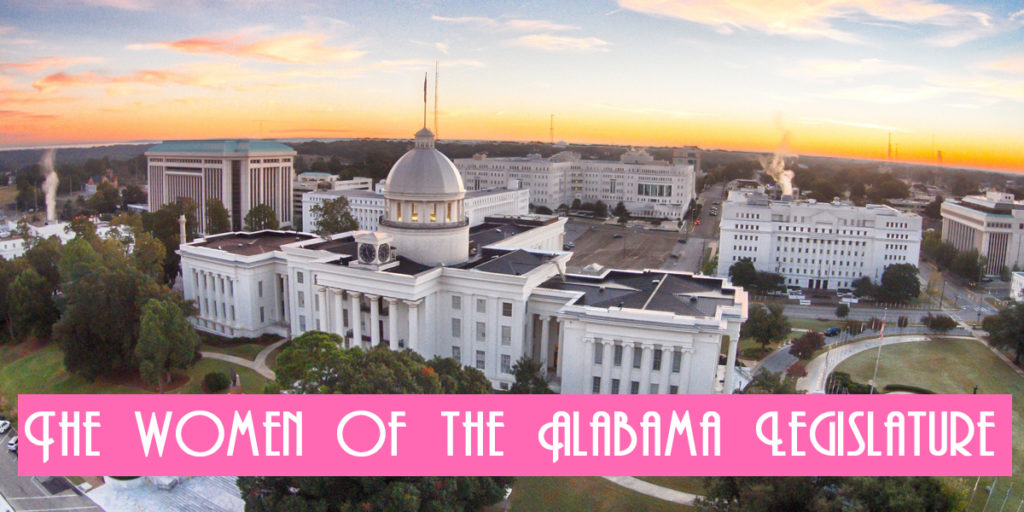
Women account for 52 percent of the population in Alabama, but when it comes to equal representation in Montgomery, the Yellowhammer State ranks among the bottom six states in the country for female representation in state legislature. Out of 140 members in the state legislature, there are only 22 female lawmakers. That’s a measly 15.7 percent. Of those 22 women — 18 in the House of Representatives and 4 in the Senate — just three find themselves in chairmanships of the 53 standing committees in the two chambers. Two others serve in vice-chairmanships, and six Democratic lawmakers are ranking members in their respective committees. While 2018 may have been dubbed the “Year of the Woman” in Alabama, politics, the state still has a long way to go to reach parity. Women in the State House of Representatives Louise Alexander Barbara Boyd: Ranking minority member on the House Children and Senior Advocacy Committee; Ranking minority member on the House County and Municipal Government Committee; Ranking minority member on the House Rules Committee Adline Clarke Merika Coleman Terri Collins: Chairman of the House Education Policy Committee Barbara Drummond Juandalynn Givan: Ranking minority member on the House Constitution Campaigns and Elections Committee Laura Hall: Ranking member on the House Health Committee; Ranking minority member on the House Technology and Research Committee; Ranking minority member on the House Ways and Means General Fund Committee Rolanda Hollis Toshina Morris Mary Moore Becky Nordgren: Chairman of the House Economic Development and Tourism Committee Connie Rowe: Vice-chairman of the House Military and Veterans Affairs Committee Ginny Shaver Pebblin Warren April Weaver: Chairman of the House Health Committee; Chairman of the House Shelby County Legislation Committee Marie Wilcox: Vice-chairman of the House County and Municipal Government Committee Debbie Wood Women in the State Senate Priscilla Dunn: Ranking minority member on the Senate Fiscal Responsibility and Economic Development Committee; Ranking minority member on the Senate Transportation and Energy Committee Vivian Davis Figures: Ranking minority member on the Senate Education Policy Committee; Ranking minority member on the Senate Local Legislation Mobile County Committee Linda Coleman-Madison: Ranking minority member of the Senate Finance and Taxation General Fund Committee; Ranking minority member on the Senate Governmental Affairs Committee; Ranking minority member on the Senate Healthcare Committee Malika-Fortier
Steve Flowers: Alabama leads the way with women in governmental leadership

There has been a lot of talk about the advancement of women in politics over the past year. It has been suggested that more progressive states have led the way with this change. Alabama can very well make the case that we lead the nation in women taking leadership roles in our state. It is very doubtful that any state in the nation can claim a female governor and a female chief executive of their states leading business organization. Kay Ivey became Governor on January 14, after having been elected to her own four-year term in November. Kay had previously been the State Treasurer for eight-years and Lt. Governor for six-years. She was serving an unexpired term as Governor for two-years prior to her election last year. On January 2, Katie Boyd Britt took over the reins of the state’s most powerful political organization, the Business Council of Alabama. She is the first woman to serve as the BCA’s President and Chief Executive Officer. She is not only the first woman CEO, she is by far the youngest CEO in BCA history. Katie Britt comes to the BCA from Senator Richard Shelby’s office where she has been our Senior Senator’s Chief of Staff. Alabama Power CEO, Mark Crosswhite, who chairs the BCA’s Executive Committee said, “As the top staff member for Senator Shelby, she has worked daily with businesses and elected officials from Alabama and the country. Katie has always been a bright star on the Alabama political stage. She grew up in Enterprise and served as President of the Student Government Association at the University of Alabama then graduated from the University of Alabama School of Law. Before becoming Chief of Staff, she worked in several posts in Senator Shelby’s office including Press Secretary. She is married to Wesley Britt, a former Alabama and professional football player and they have two children. As Senator Shelby’s top advisor for the last five years, she has headed his Judicial Nomination Task Force. She has spearheaded the effort to recommend young talent for the eight vacancies serving Alabama on the Federal Circuit and District Court Benches. As the Senator’s Chief of Staff, Katie has managed all of Shelby’s DC and state operations including matters relating to personnel throughout his six offices. She has overseen an administrative annual budget of almost $4 million. In addition, as Chief of Staff, she has been our Senior Senator’s ambassador before constituents’ community leaders, industry association heads and senior executives across our state and nation. Upon taking the BCA reins, Katie said, “My heart is in Alabama. Our state has made significant progress in recent years and I am honored to have been chosen to lead the BCA during this time of growth.” Kay and Katie are not the only female governmental leaders. Twinkle Cavanaugh serves as President of the Alabama Public Service Commission. She has been a state leader for decades. She is a past Chairman of the State Republican Party. Our seven-member congressional delegation boasts of two female delegates to Congress. Given the fact that we only have seven congressional seats, two out of seven is a pretty good percentage. Congresswoman Terri Sewell has represented the Seventh District of Alabama for close to a decade. She is on a fast leadership track in the Democratic House caucus. She is a Harvard educated lawyer who was born and raised in Selma. Her sprawling district, includes Birmingham, Tuscaloosa, Montgomery and all of the Black Belt. Congresswoman Martha Roby has represented southeast Alabama’s second district for close to a decade. She is also on a fast track within her party ranks. She is a favorite among the House Republican leadership. Therefore, folks, Alabama does not take a backseat to any state when it comes to females in leadership roles in government. Gov. Kay Ivey came out strongly in favor of a gasoline tax to meet the state’s infrastructure needs in her Inaugural Address. If successful, she will not only go down in history as the first female Republican governor and first female governor elected in her own right, she will also leave a legacy of improving Alabama economically for decades to come. See you next week. ••• Steve Flowers is Alabama’s leading political columnist. His column appears in more than 60 Alabama newspapers. He served 16 years in the state legislature. Steve may be reached at www.steveflowers.us.
Ivanka Trump project seeks to help women in developing world
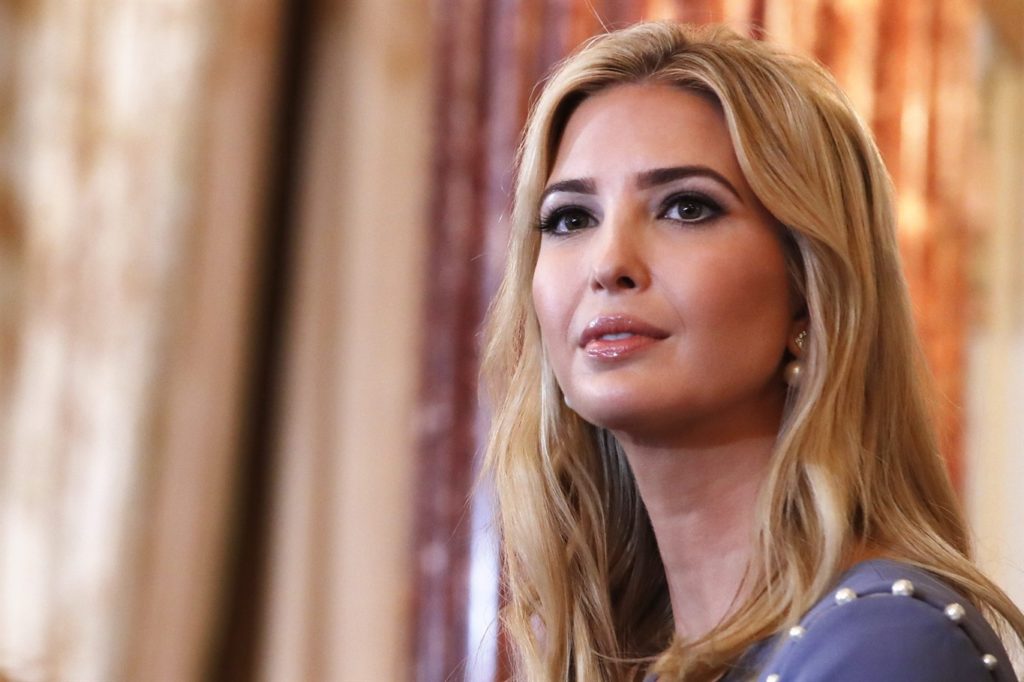
President Donald Trump threw his weight behind his daughter’s latest White House effort Thursday, backing her initiative to provide an economic boost to women in the developing world. The president on Thursday launched the Women’s Global Development and Prosperity Initiative, a governmentwide project led by senior adviser Ivanka Trump. The initiative involves the State Department, the National Security Council and other agencies. It aims to coordinate current programs and develop new ones to assist women in areas such as job training, financial support, and legal or regulatory reforms. Calling it a “historic step,” he signed a national security memorandum to officially launch the effort, framing it as a way to promote stability around the world. He was joined in the Oval Office by Ivanka Trump, elected officials, Cabinet members, business leaders and women who have benefited from such programs. The initiative aims to help 50 million women in the developing world get ahead economically over the next six years. It will draw on public and private resources, with the U.S. Agency for International Development initially setting up a $50 million fund, using already-budgeted dollars. Trump has twice tried unsuccessfully to slash USAID’s budget by a third, and his “America first” foreign policy has sought to limit the United States’ role as an international leader. But his daughter told The Associated Press that the women’s initiative was in keeping with administration goals, arguing it was a strategic investment that promoted security. “We’re proud of our legacy of being a generous nation, looking to uplift others around the world. But we want to do so in a fiscally responsible way,” she said, promising “rigorous” efforts to track progress. Among those she has consulted for the project is former Secretary of State Henry Kissinger. Ivanka Trump, who will attend the Munich Security Conference next week to promote the project, stressed that she sees this as a national security priority. “We think women are arguably the most under-tapped resource in the developing world for accelerating economic growth and prosperity,” she said. As part of the launch, USAID and Pepsi Co. announced a partnership aimed at women in India, and USAID and UPS an agreement designed to help female entrepreneurs export goods. The initiative builds on previous White House efforts to help women internationally. The Obama administration established an Office of Global Women’s Issues at the State Department and established an ambassador-at-large for global women’s Issues. That position has been vacant since Trump took office — drawing criticism from some advocates — but the White House said it now has a candidate lined up for the job. Since she joined the administration in early 2017, Ivanka Trump has focused on women’s economic issues. She previously led an effort to launch a World Bank fund to help drive women’s entrepreneurship. And she recently advocated for the Women’s Entrepreneurship and Economic Empowerment Act, which bolsters efforts focused on women by USAID. Ivanka Trump said her hope is that this effort has staying power beyond the current administration. Past global initiatives she has studied include the U.S. President’s Emergency Plan for AIDS Relief, started under President George W. Bush in 2003. “This is not an initiative that we think should stop at the culmination of the administration,” she said. “We think it’s something that should sustain itself over time, and we’re going to work really hard to show that this is a great use of foreign development assistance.” Republished with permission from the Associated Press
GOP exploring reasons for gender disparity in new Congress
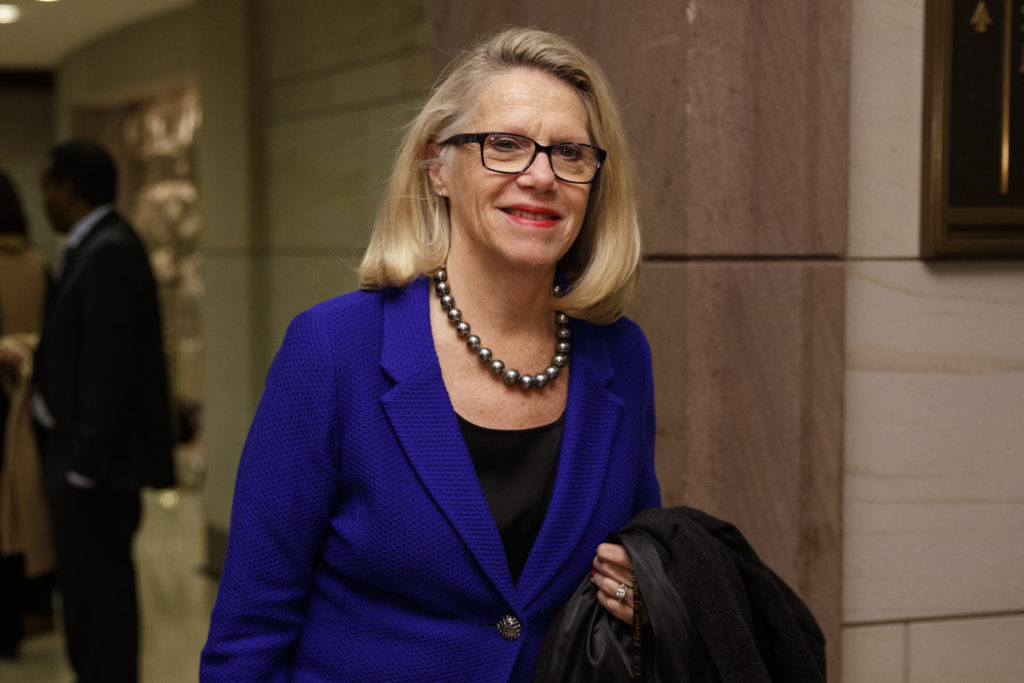
For congressional Republicans, this month’s elections ushered in the year of the woman — literally. West Virginia’s Carol Miller will be the only Republican woman entering the 435-member House as a newcomer in January. She’ll join what may be the chamber’s smallest group of female GOP lawmakers since the early 1990s — as few as 13 of at least 199 Republicans. Democrats will have at least 89. Numbers like those have Republicans searching for answers to the glaring gender disparity in their ranks — and fast. The concern is that Democrats’ lopsided edge among female voters could carry over to 2020, when President Donald Trump will be seeking a second term and House and Senate control will be in play. If the current trend continues, Republicans risk being branded the party of men. “You will see a very significant recruiting effort occur” for female candidates, said David Winston, a pollster who advises GOP congressional leaders. “It’s a natural conclusion. An environment has got to be created where that can be a success.” Evidence of the GOP gender gap was just as clear in the 100-member Senate, where Tennessee Rep. Marsha Blackburn will be the only Republican freshman. If Mississippi Sen. Cindy Hyde-Smith wins a runoff later this month there will be record-setting seven GOP women in the Republican-run Senate. But even that record is less than half the class of 17 Democratic women, which includes two freshmen. The search for answers leads to some familiar places. President Donald Trump‘s fraught history with women, combined with the #MeToo movement against sexual harassment, helped motivate Democratic women to seek office but did not appear to have the same effect with GOP women, politicians and analysts say. More broadly, the president’s brash style doesn’t sit well many female voters or potential candidates. “Women don’t like the tweets,” said Sarah Chamberlain, president of the Republican Main Street Partnership, a moderate GOP group. “I don’t know how to tone down the rhetoric. If I could have a fantasy, one wish, that would be my one wish.” Women backed Democratic candidates over Republicans on Election Day by a telling 57 percent to 41 percent, according to AP VoteCast, a wide-ranging survey of the electorate conducted by The Associated Press. Women broke by similar margins in the crucial suburbs, where Democratic victories in swing districts helped power the gains they needed to win House control. Men supported Republicans over Democrats, 51 percent to 46 percent. Strategists note the issue isn’t just about current personalities; it’s about party infrastructure. “We as a party have to make recruiting women candidates who can win a high priority,” said Andrea Bozek, spokeswoman for Winning for Women, a fledging GOP group that tries bolstering female Republican candidates. She added, “Unless people in leadership really make it a priority, I don’t think it will happen.” A record number of women ran for the House as major-party candidates this year. But Democrats outnumbered Republicans by nearly 3 to 1, according to AP data, and Democratic women were more likely to win their primaries. Of those contenders who ran in November, 183 were Democrats, the most ever, according to the Center for American Women and Politics at Rutgers University. Fifty-two were Republicans, a near-record but a fraction of female Democrats running. That partisan imbalance was aggravated by Democrats’ superior campaign infrastructure for helping female candidates. Winning for Women, created in early 2017, says it spent more than $1 million helping female candidates for the recent election. That and other GOP groups assisting female candidates couldn’t match Democrats’ 33-year-old Emily’s List, a well-financed organization that poured tens of millions into primaries and general elections and provided recruiting, training and other services to female candidates. “Democrats have been doing a much better job of getting women elected,” said Debbie Walsh, director of the Center for American Women and Politics. Asked to explain her success against other female candidates’ defeats, West Virginia’s Miller sent an email lauding Trump and other Republicans and GOP women’s groups and saying “liberal special interests” had spent heavily to defeat Republican women. Officials at the White House and the GOP did not provide answers to requests for comment. Republicans have displayed a sensitivity this year to their overwhelmingly male numbers. That includes hiring a female prosecutor to question Kavanaugh’s chief accuser, Christine Blasey Ford, when she testified before the Senate Judiciary Committee and its all-male Republicans. Within days of the elections, Republicans vaulted women into congressional leadership positions. Rep. Liz Cheney, R-Wyo., daughter of former Vice President Dick Cheney, will be No. 3 House GOP leader next year, that chamber’s highest-ranking Republican woman ever. Sen. Joni Ernst, R-Iowa, will be vice chairwoman of the Senate GOP conference, a lower-tier post, making her the first Republican woman in a Senate leadership job in eight years. Cheney said Republicans must better communicate that their policies on national security, the economy and health care are best for men and women. She called it “fundamentally offensive and paternalistic” to think women’s votes are driven by their gender. Asked on CBS’ “Face the Nation” last week whether Trump’s rhetoric alienated women, Ernst said, “We could do a better job of communicating clearly that we support women.” Republished with permission from the Associated Press.
Women marched, then ran: will they win in record numbers?
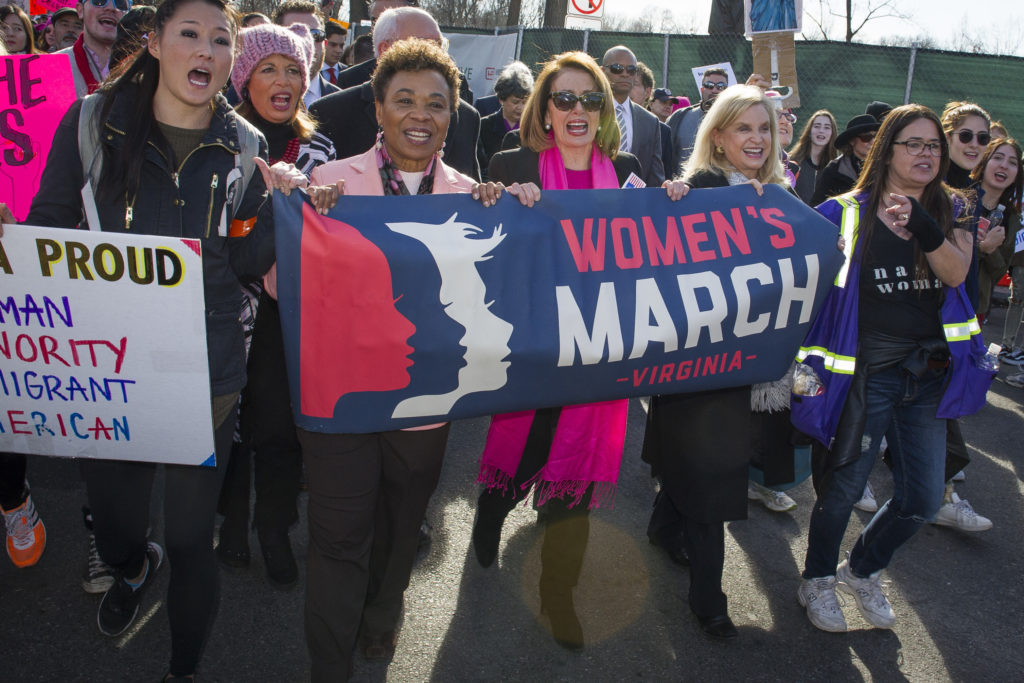
Gender politics have been a defining issue of this election cycle, beginning back with the mobilization by women against the victory and inauguration of President Donald Trump. But it’s not clear whether the #MeToo movement — and the controversy that sometimes surrounds it — will translate into political success for either party on Tuesday. More women than ever before won major party primaries for Congress and governor this year, giving women the chance to significantly increase their numbers in office. They’re donating more money to political campaigns, too, and they’ve become a well-established force in the 2018 elections. “I feel very good about where women are going to be,” said Christina Reynolds, the vice president of communications for EMILY’s List, a group dedicated to supporting Democratic women in politics. “I think regardless of what happens, women have shown that they are no longer happy with other people representing them and speaking for them.” But Republicans, too, feel the focus on gender politics could benefit them. The fight over Justice Brett Kavanaugh’s nomination to the Supreme Court galvanized their voters, they say, and could be a factor in races including the close re-election campaign for Democratic Sen. Heidi Heitkamp of North Dakota. Meanwhile, #MeToo’s impact has had ripples in other races, too. In Minnesota, Rep. Keith Ellison is fending off allegations of abuse from an ex-girlfriend that have turned the race for state attorney general on its head. Ellison has denied those allegations. In the same state, U.S. Sen. Tina Smith, a Democrat, and Karen Housley, a Republican, are fighting over the seat that Smith was appointed to after Al Franken resigned following allegations by women that he touched them inappropriately. Like most midterm elections, the 2018 campaign is also a referendum on the incumbent president. And among women, who vote historically at higher rates than men, Trump’s standing is still bleak. In the latest NPR/PBS News Hour/Marist poll, 49 percent of women said that they disapproved of Trump’s performance, compared with 44 percent of men. And 51 percent of women overall said that Trump would be a major factor in their vote. “Women have been energized for a long time, and it’s connected to Donald Trump,” said Karine Jean-Pierre, a senior adviser for MoveOn.org and a veteran of four Democratic presidential campaigns. “We are in this really awful time where people are just tired and ready and there’s been such an energy around electoral politics, for at least a year since the Women’s March.” Republican women say they, too, can lay claim to a share of the energy, particularly in the weeks since the bruising fight over Kavanaugh’s nomination. Alice Stewart, a veteran of Republican presidential campaigns, said it’s critical that the #MeToo movement “stay strong and continue.” “It has done a lot of good to hold men in power and men who have committed these acts accountable,” she said in an interview. “In terms of significance, it is greater than the midterm elections.” But, Stewart added, in the case of Kavanaugh’s confirmation, the movement was “temporarily hijacked for certain groups for their own gain,” a tactic that she believes ended up hurting Democrats. “In that instance, it backfired. It galvanized Republicans. It made them unite behind Brett Kavanaugh,” she said. “I say it backfired in that it reignited the intensity of Republicans due to the levels that the Democrats would go to, to turn the confirmation process into such a character assassination.” But women who opposed Kavanaugh said the energy from recent protests in Washington and elsewhere over his nomination would fuel Democratic women in 2018 and beyond. Kelley Robinson, the national organizing director for Planned Parenthood Action Fund, remembered standing on the Supreme Court steps, addressing a rally after Kavanaugh was confirmed. “I’ve never felt that kind of wave of sadness, of grief and of anger that I felt in front of that large group,” she said. Robinson said she believes that voters — and particularly women — will remember that fight. Every senator that voted for Kavanaugh, Robinson said, “they sided with folks that disbelieved, that mocked survivors and sided against women.” Sarah Sherman, who founded Vote MeToo PAC to support female candidates this year, said that after the Kavanaugh vote she personally felt “really steamrolled, but we peeled ourselves off the pavement” to continue to fight on behalf of women. The fight was “definitely something that has galvanized Republicans,” she said. But she also said there may be women — some survivors of assault themselves — who will be propelled to the polls by the Women’s March, the Kavanaugh battle and in rebuke to the Trump presidency who go unseen. “When you’re walking in there, you don’t have to explain yourself to anyone. You don’t have to explain yourself to your boss,” she said. “You still have your vote.” Some women said that while #MeToo is not explicitly aimed toward electing more women or driving female voters to the polls, the movement and the new wave of women in politics share the same fuel. “It’s about ways of approaching the same basic problem: A group of people who have not seen themselves reflected in the power system is stepping up and saying, ‘This isn’t working for me. I want to push back against the status quo because otherwise, I won’t be protected or fought for,’” said Amanda Litman, a co-founder of Run For Something, which helps left-leaning millennials run for office. At its core, the #MeToo movement is a cultural movement, and cultural movements often far outpace national politics, said Shaunna Thomas, a co-founder of Ultraviolet, which advocates for women’s rights. She noted that November’s elections are the first “since women around the country started demanding that sexual abusers be held accountable.” “An electoral outcome at this stage is a lot to expect of a movement that is about challenging patriarchy — it’s a huge goal,” offered Thomas. “It’s not just, we want fewer women to be sexually assaulted or raped or harassed. What we’re
Women woefully underrepresented in Alabama board rooms

The battle for gender equality rages in America, as companies from coast to coast are trying to equalize representation of women on their boards. And 2018 may just be the year of the woman. The Wall Street Journal reports from January to May, women made up 31 percent of new board directors at 3,000 of the largest publicly traded U.S. companies, according to a data analysis by corporate governance firm Institutional Shareholder Services. Translation: 2018 has seen the highest percentage of female board seats in at least a decade. But Alabama is a bit behind the rest of the country. According to a new analysis by Birmingham Business Journal (BBJ), “none of the state’s public companies have women in CEO or equivalent roles, and none of their boards are chaired by women.” Which means, Alabama companies are losing out on not only an important segment of talent, but on critical marketplace perspective. Out of the 12 companies that made BBJ’s final list, more than half of the list didn’t even get past the 15 percent mark when it came to the percentage of women board members. In fact, the highest percentage of women on any board was on just 30 percent. Here’s a look at Alabama’s companies that have the highest percent of board members that are women: 12. Servisfirst Bancshares Inc. Board members: 6 Percent of women: 0% 11. National Commerce Corp Board members: 12 Percent of women: 7% 10. Auburn National Board members: 11 Percent of women: 9% 9. Proassurance Corp Board members: 10 Percent of women: 10% 8. Hibbett Sports Inc. Board members: 9 Percent of women: 11% 7. Energen Corp Board members: 9 Percent of women: 11% 6. Medical properties Trust Inc. Board members: 6 Percent of women: 17% 5. Regions Financial Corp. Board members: 14 Percent of women: 21% 4. Computer Programs and Systems Inc. Board members: 9 Percent of women: 22% 3. Adtran Inc. Board members: 8 Percent of women: 25% 2. Vulcan Materials Co. Board members: 10 Percent of women: 30% 1. Encompass Health Board members: 10 Percent of women: 30%
Doug Jones co-sponsors legislation to ensure equal pay for women
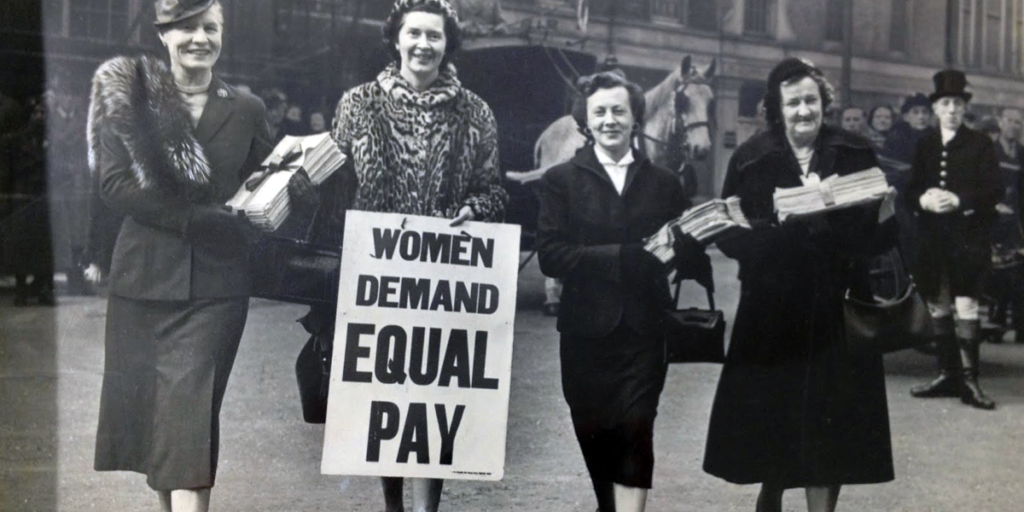
Newly elected U.S. Sen. Doug Jones is calling for an equal pay law. On Tuesday, the Democrat announced he will co-sponsor legislation designed to address the pay gap between men and women. S.819: The Paycheck Fairness Act, would strengthen the Equal Pay Act of 1963 and guarantee that women can challenge pay discrimination and hold employers accountable. “Despite making up half the workforce, American women still routinely face obstacles to receiving the pay and benefits they’ve earned,” said Jones. “We have a duty to make sure that women are compensated fairly for the jobs they do. I’m proud to co-sponsor the Paycheck Fairness Act and I look forward to working with my colleagues to see this common-sense legislation passed.” According to the Institute for Women’s Policy Research (IWPR), five decades after the Equal Pay Act of 1963, women continue make an average of 80 cents for every dollar earned by a man. The pay gap is even wider for women of color, with African American women making 63 cents on the dollar, and Hispanic women making only 54 cents, on average, compared with white men. The Paycheck Fairness Act would strengthen and close loopholes in the Equal Pay Act of 1963 by holding employers accountable for discriminatory practices, subject to the same remedies as discrimination based on race or national origin. The bill endeavors to end the practice of pay secrecy by easing workers’ ability to individually or jointly challenge pay discrimination, and strengthening the available remedies for wronged employees.
Steve Flowers: Could 2018 be the Year of the Woman in Alabama politics?
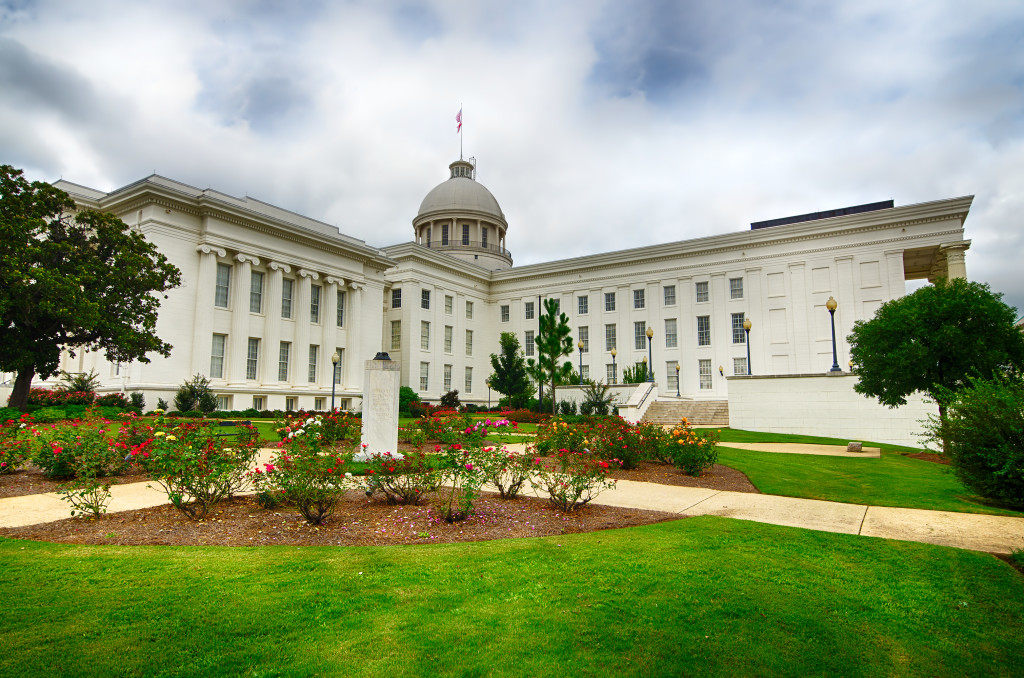
This political year of 2018 may very well be the year of the woman in Alabama politics. In Alabama’s 200 year history, only one woman has been elected governor. Lurleen Wallace won in 1966. Only two women have served as governor, Governor Lurleen and our current governor, Kay Ivey. It may be a historic year. Sue Bell Cobb, the former Alabama State Supreme Court Chief Justice, and the first woman to hold that position, is hoping to be able to be the Democratic standard-bearer. She was elected Chief Justice in 2006, in a very expensive, high profiled battle with Republican Drayton Nabors. She had been a District Court Judge in her native Conecuh County for a long time before running statewide. She was elected to a six year term as Chief Justice in 2006, but quit after four years, inexplicably. Cobb, 61, is predicting that it will be an all female gubernatorial showdown. She believes that she will be the Democratic nominee and that Governor Kay Ivey will carry the Republican banner into battle. She says, “That’s never happened and my prediction is that is what it will exactly be.” However, first things first. Judge Cobb has to win the Democratic nomination. She is not the favorite in that primary. Tuscaloosa mayor, Walt Maddox, is the early favorite to win the Democratic nomination. Most political insiders suggest that Maddox is expected to get the overwhelming support of African American voters. The black vote makes up the bulk and majority of Democratic Primary voters in the state. This is no longer a monolithic vote. However, it tends to gravitate to one candidate in a primary. The few white voters who participate in the Democratic primary are young and they can more readily identify with Maddox who is 45. In addition, there is some disillusionment among Democratic voters that Cobb quit her term midway as Chief Justice and allowed Republican Governor Robert Bentley to appoint a replacement. He, of course, appointed a Republican. She was the only Democrat on the Supreme Court. Roy Moore won the seat of Chief Justice in 2012. Other Democratic partisans were dismayed that Cobb said she supported Donald Trump’s selection of Jeff Sessions for Attorney General. It may be perceived that her day has passed. Kay Ivey appeared to be headed for the house and her day may have passed when out of the blue Bentley resigns and she is plucked out of the obscurity of the Lt. Governor’s office and thrust into the governorship. She seems like a grandmother who sticks to her knitting and steadies the Ship of State, which has gone through stormy waters the past four years. Kay Ivey may indeed make it to the dance as the Republican nominee in November. She is in the catbird’s seat and favored to win the GOP Primary. However, she created a couple of stumbling blocks during the 2017 Senate election year that may thwart her reelection. Some GOP establishment stalwarts say that her changing the Senate election from 2018 to 2017 threw Luther Strange, their candidate, under the bus and gave the nomination to Roy Moore, which led to losing the seat to a Democrat. Her move also cost the state’s beleaguered General Fund $10 to $15 million. Some suburban women became disenchanted with her with she said she had no reason to not believe the women who accused Roy Moore of assaulting them as teenagers, yet she was still going to vote for him because he was a Republican. These two actions are only political stumbling blocks, not roadblocks. Therefore, what I see as a possibility is not an all female race for governor, but a possible triumvirate of females being sworn into the top three constitutional offices next January. You could see Kay Ivey sworn into the Governor’s office, Twinkle Cavanaugh sworn in as Lt. Governor, and Alice Martin sworn in as Attorney General. All three are Republicans. The Republican nominee goes into the general election with a 60/40 probability of winning. Currently, Kay Ivey is the favorite in the governor’s race. Twinkle is the favorite in the Lt. Governor’s race. Alice Martin or Troy King is favored in the Attorney General’s race. If you made me bet right now, I would bet that Alabama would at least have a governor and Lt. Governor that are women. That may be the story of the year in Alabama politics in 2018. See you next week. ••• Steve Flowers is Alabama’s leading political columnist. His weekly column appears in over 60 Alabama newspapers. He served 16 years in the state legislature. Steve may be reached at www.steveflowers.us.
New Alabama group seeks to elevate women in politics
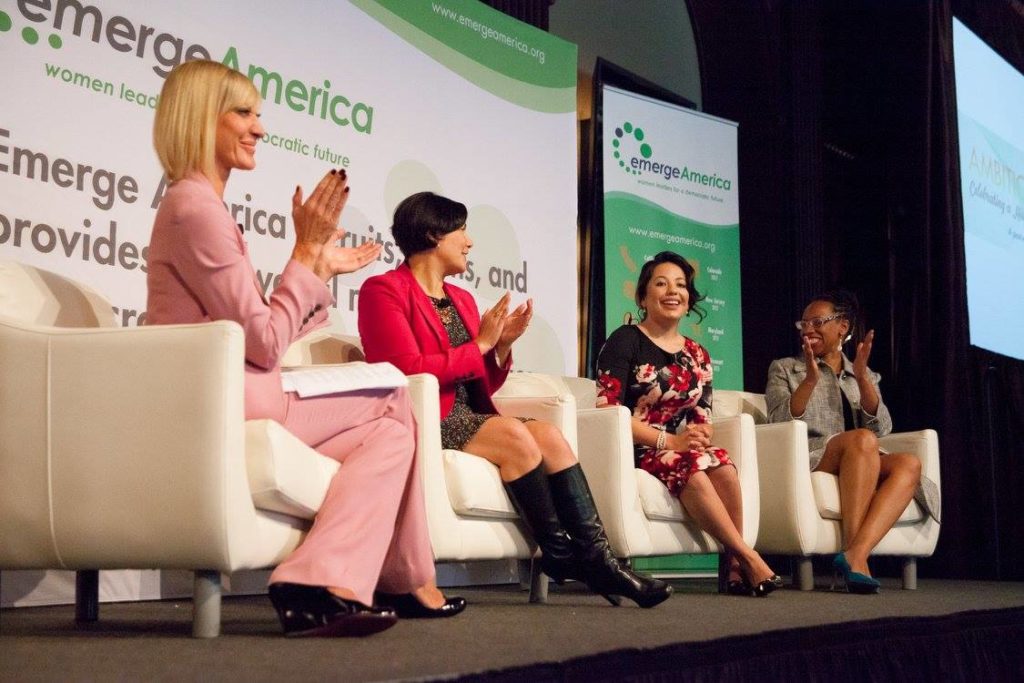
Women make up 19.4 percent of the U.S. Congress and 24.8 percent of state legislatures. The numbers are even more disproportionate at the local level. In Alabama, women make up 52 percent of the state’s population, but they only hold 14 percent of seats in the state legislature. As of 2016, there are no women of color in statewide executive elective office. A new Alabama group wants to change that. Emerge Alabama, a group dedicated to training and electing Democratic women to office, has announced it’s now taking applications for its inaugural training class. Their vision? To change the face of power, politics, and leadership in this country in order to have policies that are responsive to all Americans. According to the Emerge website: The Emerge model is an intensive 70-hour, cohort-based training program, designed explicitly to address the extra challenges that women face in the political arena by offering early-stage recruitment; top-notch, comprehensive training; and an ongoing network of support. We use a rigorous, highly selective application and screening process to ensure that our participants are great future candidates. Our recruitment effort focuses on all levels of diversity, so that we can add depth and breadth to the Democratic candidate pool. Founded only 10 years ago and now operating in 23 states, Emerge affiliates have trained over 2,500 Democratic women nationwide, creating a powerful pipeline of Democratic women running in politically important districts. In 2016, over 330 Emerge alumnae ran for office across the country and 70 percent of those who appeared on the November ballot won their elections. In 2017, Emerge tipped the scales and 150 alumnae were elected to office. Alabama women interested in applying should submit an application no later than Nov. 28. It is available online here.


